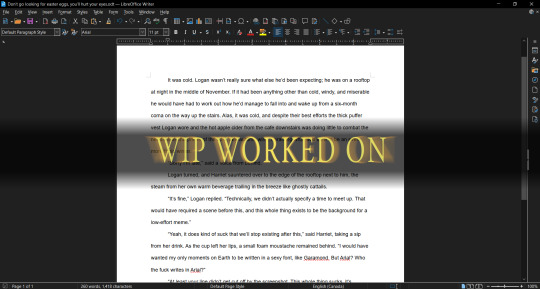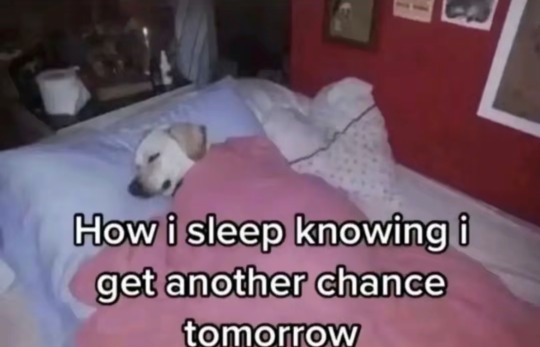#life and struggle
Explore tagged Tumblr posts
Text
sometimes the best writing advice is "just let it be bad." revolutionary. terrifying. but it works.
#writing#writeblr#writer problems#writing humor#writers on tumblr#writing memes#writing community#writing struggles#writer life#creative writing#writer things#writing motivation#ao3 writer#writer memes#writing is hard#on writing#writerblr#writers block#writing funny#writer thoughts#fiction writing#writer struggles#writing tips#writing advice#writer woes#writing woes#writer quotes#writing inspiration#plot problems#writer chaos
33K notes
·
View notes
Text
the devil couldn’t reach me so he made me feel like i dont belong anywhere.
#actually bpd#bpd feels#bpd thoughts#depressing shit#relatable#tw depressing thoughts#tasiblog#bpd#bpd safe#bpd stuff#actually borderline#borderline things#borderline problems#living with borderline#borderline blog#borderline thoughts#borderline personality disorder#bpd triggers#bpd blog#bpd problems#bpd vent#bpd life#bpd is a bitch#bpd issues#bpd struggles#bpd shit#bpd tumblr#bpd emotions#bpd mood#bpd brain
14K notes
·
View notes
Text
Tips for writing flawed but lovable characters.
Flawed characters are the ones we root for, cry over, and remember long after the story ends. But creating a character who’s both imperfect and likable can feel like a tightrope walk.
1. Flaws That Stem From Their Strengths
When a character’s greatest strength is also their Achilles' heel, it creates depth.
Strength: Fiercely loyal.
Flaw: Blind to betrayal or willing to go to dangerous extremes for loved ones.
“She’d burn the whole world down to save her sister—even if it killed her.”
2. Let Their Flaws Cause Problems
Flaws should have consequences—messy, believable ones.
Flaw: Impatience.
Result: They rush into action, ruining carefully laid plans.
“I thought I could handle it myself,” he muttered, staring at the smoking wreckage. “Guess not.”
3. Show Self-Awareness—or Lack Thereof
Characters who know they’re flawed (but struggle to change) are relatable. Characters who don’t realize their flaws can create dramatic tension.
A self-aware flaw: “I know I talk too much. It’s just… silence makes me feel like I’m disappearing.” A blind spot: “What do you mean I always have to be right? I’m just better at solving problems than most people!”
4. Give Them Redeeming Traits
A mix of good and bad keeps characters balanced.
Flaw: They’re manipulative.
Redeeming Trait: They use it to protect vulnerable people.
“Yes, I lied to get him to trust me. But he would’ve died otherwise.”
Readers are more forgiving of flaws when they see the bigger picture.
5. Let Them Grow—But Slowly
Instant redemption feels cheap. Characters should stumble, fail, and backslide before they change.
Early in the story: “I don’t need anyone. I’ve got this.”
Midpoint: “Okay, fine. Maybe I could use some help. But don’t get used to it.”
End: “Thank you. For everything.”
The gradual arc makes their growth feel earned.
6. Make Them Relatable, Not Perfect
Readers connect with characters who feel human—messy emotions, bad decisions, and all.
A bad decision: Skipping their best friend’s wedding because they’re jealous of their happiness.
A messy emotion: Feeling guilty afterward but doubling down to justify their actions.
A vulnerable moment: Finally apologizing, unsure if they’ll be forgiven.
7. Use Humor as a Balancing Act
Humor softens even the most prickly characters.
Flaw: Cynicism.
Humorous side: Making snarky, self-deprecating remarks that reveal their softer side.
“Love? No thanks. I’m allergic to heartbreak—and flowers.”
8. Avoid Overdoing the Flaws
Too many flaws can make a character feel unlikable or overburdened.
Instead of: A character who’s selfish, cruel, cowardly, and rude.
Try: A character who’s selfish but occasionally shows surprising generosity.
“Don’t tell anyone I helped you. I have a reputation to maintain.”
9. Let Them Be Vulnerable
Vulnerability adds layers and makes flaws understandable.
Flaw: They’re cold and distant.
Vulnerability: They’ve been hurt before and are terrified of getting close to anyone again.
“It’s easier this way. If I don’t care about you, then you can’t leave me.”
10. Make Their Flaws Integral to the Plot
When flaws directly impact the story, they feel purposeful rather than tacked on.
Flaw: Their arrogance alienates the people they need.
Plot Impact: When their plan fails, they’re left scrambling because no one will help them.
Flawed but lovable characters are the backbone of compelling stories. They remind us that imperfection is human—and that growth is possible.
#writerblr#writers#creative writing#creative writing tips#Writing tips#fanfiction#fanfic writing#Fanfic writer#fanfiction writing#fiction writing#writing#am writing#tumblr writing community#writers on tumblr#writing advice#fic writing#writing community#writing inspo#writers on ao3#writers on ao3 writers on tumblr#AO3 fic#ao3 writing community#writing stuff#wip#writers block#writer things#writer life#writer struggles#writing help#xyywrites
8K notes
·
View notes
Text
If the right way is too hard, fuck it. Do it the wrong way.
Folding clothes keeps you from getting the laundry done? Stop folding clothes. Put a basket in your room and throw your unfolded clean stuff into it right out of the dryer, it's fine.
Rinsing dishes off keeps you from loading the dishwasher? Load them dirty and run it twice.
Chopping onions keeps you from making yourself dinner? Buy the freezer bags of chopped onions.
You forget to take your meds and don't want to get out of bed to get them? Start putting them next to the bed.
Can't keep up with the dishes? Get paper plates. Worried about environment impact? Order biodegradable ones online if your local store doesn't have one.
Make the task easier. Put things where you use them instead of where they "go." Eliminate the steps that keep you from finishing the task. Eliminate the task that is stressing you out.
Do it the "wrong" way. It's literally fine.
#credit to#kc davis#for literally saving my life with this advice#struggle care#self care#life advice
65K notes
·
View notes
Text
I know this is the website where we talk about artists and writers doing anything other than making art or writing, but man, we REALLY undersell how good it feels to actually work on your stuff.
Like you hit your word count for the first time in a week and its like

#my posts#writing#writeblr#writers on tumblr#writers#writer#writing community#creative writing#writerblr#writer things#writers block#writers life#writers and poets#writerscommunity#writer stuff#writing funny#on writing#write#writing meme#writing memes#writing struggles#writing problems#writing humor#writer problems#writing is hard#motivation#writing motivation#autumn#writing aesthetic
13K notes
·
View notes
Text
Tips from a Beta Reading Writer
This one's for the scenes with multiple characters, and you're not sure how to keep everyone involved.
Writing group scenes is chaos. Someone’s talking, someone’s interrupting, someone’s zoning out thinking about breadsticks. And if you’re not careful, half your cast fades into the background like NPCs in a video game. I used to struggle with this so much—my characters would just exist in the scene without actually affecting it. But here’s what I've learned and have started implementing:
✨ Give everyone a job in the scene ✨
Not their literal job—like, not everyone needs to be solving a crime or casting spells. I mean: Why are they in this moment? What’s their role in the conversation?
My favourite examples are:
The Driver: Moves the convo forward. They have an agenda, they’re pushing the action.
The Instigator: Pokes the bear. Asks the messy questions. Stirring the pot like a chef on a mission.
The Voice of Reason: "Guys, maybe we don’t commit arson today?"
The Distracted One: Completely in their own world. Tuning out, doodling on a napkin, thinking about their ex.
The Observer: Not saying much, but noticing everything. (Quiet characters still have presence!)
The Wild Card: Who knows what they’ll do? Certainly not them. Probably about to make things worse.
If a character has no function, they’ll disappear. Give them something—even if it’s just a side comment, a reaction, or stealing fries off someone’s plate. Keep them interesting, and your readers will stay interested too.
#Tips from the cranberry queen#writing#writeblr#writer problems#writing humor#writers on tumblr#writing memes#writing community#writing struggles#writer life#creative writing#writer things#writing motivation#ao3 writer#writer memes#writing is hard#on writing#writerblr#writers block#writing funny#writer thoughts#fiction writing#writer struggles#writing tips#writing advice#writer woes#writing woes#writer quotes#writing inspiration#plot problems
7K notes
·
View notes
Text
grammar this. grammar that. sometimes 'grammatically correct' just doesn't hit the spot. the vibes are telling me to laugh in the face of the english language and that's exactly what I'm going to do, one incorrectly structured sentence at a time.
#writer community#writers#writers on tumblr#writeblr#writing#writerscommunity#writer humor#writer problems#writer struggles#writers life#creative writing#writing life#novel writing#writers of tumblr#writer stuff#ao3#ao3 author#ao3 writer#writer#writing struggles#writing stuff
8K notes
·
View notes
Text
#film#book#inspiration#book review#positivity#optimism#hope#faith#meaning of life#The Story of My Life by Helen Keller#autobiography#indomitable human spirit#life and struggle#physicist Stephen Hawking#Helen Keller#overcoming challenges#human greatness#physical incapability#determination#Let Us Have Faith#power of belief#positive outlook#faith as dynamic force#transformation#Victor Frankl#Man’s Search For Meaning#Auschwitz concentration camp#The Power of Positive Thinking#Vicent Peale#knowing capabilities
0 notes
Text
there is always tomorrow









#lovecore#hopecore#webweaving#the presence of love is beautiful in itself#you got this#self care#self love#recovery#healing#hopepunk#recovery is not linear it is okay to have bad days you have the entirety of your life to have a better day#i wish anyone reading this a good life#i love you#you are loved#and i hope you will find happiness in the small things#i’ve been struggling a lot recently but i always remind myself the good set in store for me and look up places in the city i’ll move to#and it motivates me a bunch so i hope u all find things to strive towards mwah
15K notes
·
View notes
Text
DESERT DUO DOODLES!!

Bonus Giran 😼

#grian#grian fanart#goodtimeswithscar#goodtimewithscar fanart#life series#hermitcraft#art#my art#digital art#I'm hyperfixated and struggling
3K notes
·
View notes
Text
writing? oh, i’m definitely writing. in my head. during the most inconvenient times. like in the shower or when i’m about to fall asleep. actual typing? no, no, we don’t do that here.
#writing#writeblr#writer problems#writing humor#writers on tumblr#writing memes#writing community#writing struggles#writer life#creative writing#writer things#writing motivation#ao3 writer#writer memes#writing is hard#on writing#writerblr#writers block#writing funny#writer thoughts#fiction writing#writer struggles#writing tips#writing advice#writer woes#writing woes#writer quotes#writing inspiration#plot problems#writer chaos
21K notes
·
View notes
Text
so i started to think about some stuff. never doing that again.
#actually bpd#bpd feels#bpd thoughts#depressing shit#relatable#tasiblog#tw depressing thoughts#bpd#bpd safe#bpd stuff#borderline thoughts#bpd is a bitch#borderline personality disorder#actually borderline#borderline things#bpd blog#bpd problems#bpd life#bpd irl#bpd is bpding#bpd issues#bpd relatable#bpd struggles#bpd shit#bpd mood#bpd moment#bpd be like#bpd tumblr#bpd tag#bpd things
9K notes
·
View notes
Text
Overused Words in Writing & How to Avoid Them
We’ve all got our comfort words—those trusty adjectives, verbs, or phrases we lean on like a crutch. But when certain words show up too often, they lose their impact, leaving your writing feeling repetitive or uninspired.
1. “Very” and Its Cousins
Why It’s Overused: It’s easy to tack on “very” for emphasis, but it’s vague and doesn’t pull its weight.
Instead of: “She was very tired.” Try: “She was exhausted.” / “She dragged her feet like lead weights.”
💡 Tip: Use precise, vivid descriptions rather than vague intensifiers.
2. “Looked” and “Saw”
Why It’s Overused: It’s functional but flat, and it often tells instead of shows.
Instead of: “He looked at her in disbelief.” Try: “His eyebrows shot up, his lips parting as if words had failed him.”
💡 Tip: Focus on body language or sensory details instead of relying on generic verbs.
3. “Suddenly”
Why It’s Overused: It’s often used to create surprise, but it tells readers how to feel instead of letting the scene deliver the shock.
Instead of: “Suddenly, the door slammed shut.” Try: “The door slammed shut, the sound ricocheting through the empty room.”
💡 Tip: Let the action or pacing create urgency without needing to announce it.
4. “Said” (When Overdone or Misused)
Why It’s Overused: While “said” is often invisible and functional, using it in every dialogue tag can feel robotic.
Instead of: “I can’t believe it,” she said. “Me neither,” he said. Try: Replace with an action: “I can’t believe it.” She ran a hand through her hair, pacing. “Me neither.” He leaned against the counter, arms crossed.
💡 Tip: Don’t ditch “said” entirely; just mix it up with context clues or action beats.
5. “Felt”
Why It’s Overused: It’s a shortcut that tells instead of showing emotions.
Instead of: “She felt nervous.” Try: “Her palms slicked with sweat, and she couldn’t stop her leg from bouncing.”
💡 Tip: Let readers infer emotions through sensory details or behavior.
6. “Really” and “Actually”
Why It’s Overused: They add little to your sentences and can dilute the impact of stronger words.
Instead of: “I really don’t think that’s a good idea.” Try: “I don’t think that’s a good idea.”
💡 Tip: If a sentence works without these words, cut them.
7. “Walked” or “Ran”
Why It’s Overused: These are go-to movement words, but they can feel bland when used repeatedly.
Instead of: “He walked into the room.” Try: “He strolled in like he owned the place.” / “He shuffled in, avoiding everyone’s eyes.”
💡 Tip: Use verbs that convey mood, speed, or attitude.
8. “Just”
Why It’s Overused: It sneaks into sentences unnecessarily, weakening your prose.
Instead of: “I just wanted to say I’m sorry.” Try: “I wanted to say I’m sorry.”
💡 Tip: Delete “just” unless it adds essential nuance.
9. “Thought”
Why It’s Overused: It tells readers what a character is thinking instead of showing it through internal dialogue or action.
Instead of: “She thought he might be lying.” Try: “His story didn’t add up. The timelines didn’t match, and he wouldn’t meet her eyes.”
💡 Tip: Immerse readers in the character’s perspective without announcing their thoughts.
10. “Nice” and Other Vague Adjectives
Why It’s Overused: It’s generic and doesn’t give readers a clear picture.
Instead of: “He was a nice guy.” Try: “He always remembered her coffee order and held the door open, even when his arms were full.”
💡 Tip: Show qualities through actions instead of relying on vague descriptors.
Final Tips for Avoiding Overused Words:
1. Use a thesaurus wisely: Swap overused words for synonyms, but stay true to your character’s voice and the scene’s tone.
2. Read your work aloud: You’ll catch repetitive patterns and clunky phrases more easily.
3. Edit in layers: Focus on eliminating overused words during your second or third pass, not your first draft.
#writerblr#writers#creative writing#creative writing tips#Writing tips#fanfiction#fanfic writing#Fanfic writer#fanfiction writing#fiction writing#writing#am writing#tumblr writing community#writers on tumblr#writing advice#fic writing#writing community#writing inspo#writers on ao3#writers on ao3 writers on tumblr#AO3 fic#ao3 writing community#writing stuff#wip#writers block#writer things#writer life#writer struggles#writing help#xyywrites
4K notes
·
View notes
Text
Please stick to ONE TASK, brain!!
🧠: No. :)

#task failed successfully#goldencomet💫#meme#my memes#writing meme#writers life#writer woes#writing struggles#writers on tumblr#writing on tumblr#artists on tumblr#writeblr#writeblr community#writing community#artist community#writers on ao3#ao3 community#artists#writers#writing
8K notes
·
View notes
Text

Cause of my insomnia number one:
#writer#writers on tumblr#writerscommunity#writing#books#books and reading#creative writing#my writing#writer things#writeblr#writers#write#writings#writers community#writing community#creative writers#writer community#writing stuff#writing struggles#writers on writing#writers life#writers blog#writers block#writing life#writing blog#writing books#writing block
2K notes
·
View notes